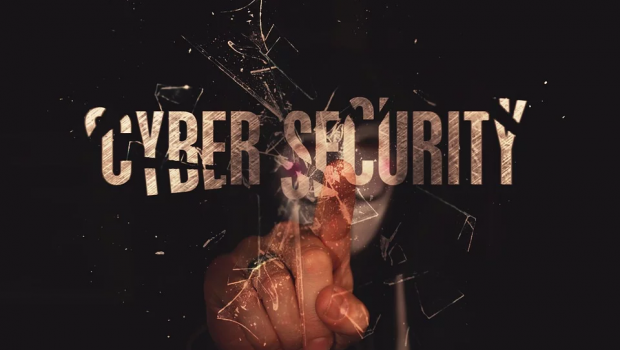Professional Tips to A Successful Career in Cyber Security
No one looking down in the middle of their pants and smiling is actually smiling at what’s inside their pants, but rather and most probably the one of the only other explanation would be is reading something from robots.net or any other site on their phone.
Then again according to most cybersecurity experts out there they would immediately downright hit you with this very basic of information, that your phone is the weakest link in your cybersecurity bubble, simply because no one ever thinks twice about posting their most basic of information into their social media profiles, such as their complete name, parents maiden names, names of family members including their dog’s name, birthdays and more.
Yes, this basic information can indeed be helpful in automating reminder tasks on your social media. But in all truths, these are also all the basic pieces of information needed to bypass any of your security passwords to enable anyone to request a resetting or a reset password link from any website they are affiliated with. Yet we’re still on in it no matter what.
And that is why there is a career geared only for Cyber Security professionals, cause every day it’s a struggle for corporations to secure their valuable data. Especially when corporations could not control the dissemination of personal data posted by their rank personnel.
How did these Cyber Security experts know these? How did they become who they are right now? What paths did they take to have a career in this industry? Let me enlighten you on where, how and what to do to be a successful Cyber Security professional.
In the beginning
Education is, of course, your most basic, but which one? Since we are talking about the cyber realm here, then the most obvious choices would be to go to any course related to Information Technology(IT).
Start with the basics, a diploma in Information Technology would provide a basic understanding of how everything works from hardware to software.
Then lead from that and go learn the basics and advance forms of programing and pay specific attention to programming languages geared towards cybersecurity, such as C, C++, and Python, these are great starters for cybersecurity rookies going for the corporate cybersecurity path.
So you may cover both corporate and public domains of cybersecurity it would be best to add to your arsenal of knowledge programming languages for the web such as JavaScript, PHP, and SQL, this will then help you a great deal with understanding cybersecurity problems arising from public domains.
A budding cybersecurity professional should know how the most important aspect of your job, which is data, gets from one place to another, as well and also how it is transformed so that these data can move through physical electronic wires from one server to another.
Networking skills are a must as well, as such getting a bottom to the top overview and understanding of networking would be something that a rookie should have a full grasp on before engaging in the field.
Learning networking from hardware infrastructure to software configuration will provide a good base point from which he could imagine where an attack could come from, progress and eventually hit the target data source.
Finally as an option, getting some training on security guard posts should also be considered cause even the physical positioning of CCTVs or physically securing a room can provide valuable insights on how to electronically secure data, physical or otherwise, would be an essential help in preventing cybercrime.
So you think you can hack it
Books, theories, and classroom lectures are where you learn the basics of what to do. This is due mainly to the fact that most of these lectures are already proven techniques that other professionals in the field of cybersecurity have already gone through and their solutions have all demonstrated as the best in resolving a certain situation. But not all situations are the same, this is where practical experience becomes the best teacher.
On a side note, this is where things get difficult, as a fresh graduate there are no proven or practical ways of actually experiencing cybersecurity threats without the risk of losses.
Such as in the case when a threat is found, corporations would definitely not want a rookie handling the security risk and resolving the issue. This is for the simple reason that they might lose potential profits by the millions should the rookie fail to protect their valuable data.
So begin by going through the most simple security threats first, volunteer or work for a network infrastructure firm that provides planning, developing and implementing networking services, cause the best part of implementing network is securing the hardware first.
Preparing or planning security options for a client’s network and server facilities are the best and quickest way to start your career. This option not only offer the quickest way of getting experience, but it will also prepare you for tackling the lowest level of cybersecurity issues, which is hardware hacking.
Hardware hacking is as simple as attaching a CAT12 network cable to a server’s port and accessing its data through rewiring data transmission. On the other hand, it can also be as complicated as splicing through light cables then attaching the splicer to a laptop and using the laptop to decrypt active transmissions without interrupting the light waves, that could trigger cybersecurity’s automated digital alarms.
Physical hacking is as prevalent as network hacking costing service providers millions so extensive experience with turning-on and turning-off actually has its practical uses in cybersecurity.
After a couple of years of experience in hardware deployment and security. You’ll then have a sense of the risks involved in certain situations or scenarios. This in return with some additional training and certifications you can then move on to become a cyber risk analyst, which is the very first level or line in the cybersecurity career.
Even with just your risk analyst certification and a little over a year of experience that would be enough to enter the big leagues of corporate cybersecurity.
It’s lonely at the top
The ladder to the top progresses rapidly, especially for cybersecurity experts/consultants. The only thing that differentiates those that stay on top and those that fall on the sidelines is integrity.
Build up your network of clients by working with different companies as you progress to the upper tier of your career. Be sure to work with your soft skills as well, It’s never easy to speak publicly, or to present your investigative report to a committee but with soft skills, you can learn how to master justifying your findings and convincing them of the proper actions as per your recommendations.
Lastly, know your worth, never compromise your work simply because the client is cheap. Knowing that you are the expert and that your services, though they may not be low-cost, your soft-skill should be able to convince them that it’s well worth it. Since they won’t be able to put a price tag on loss data.















